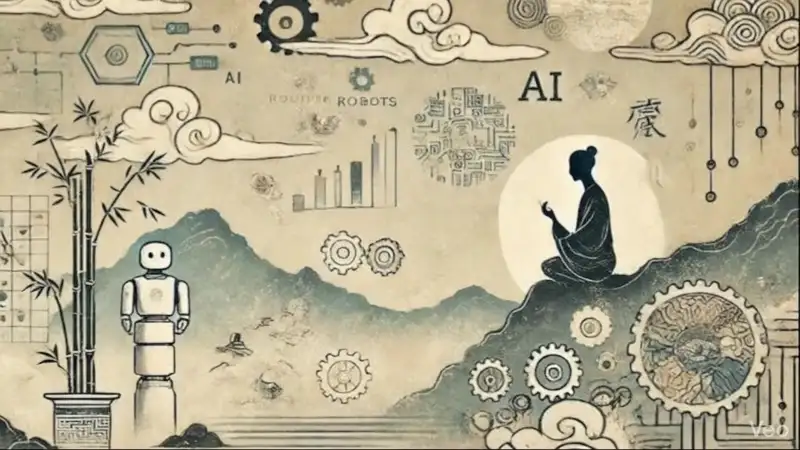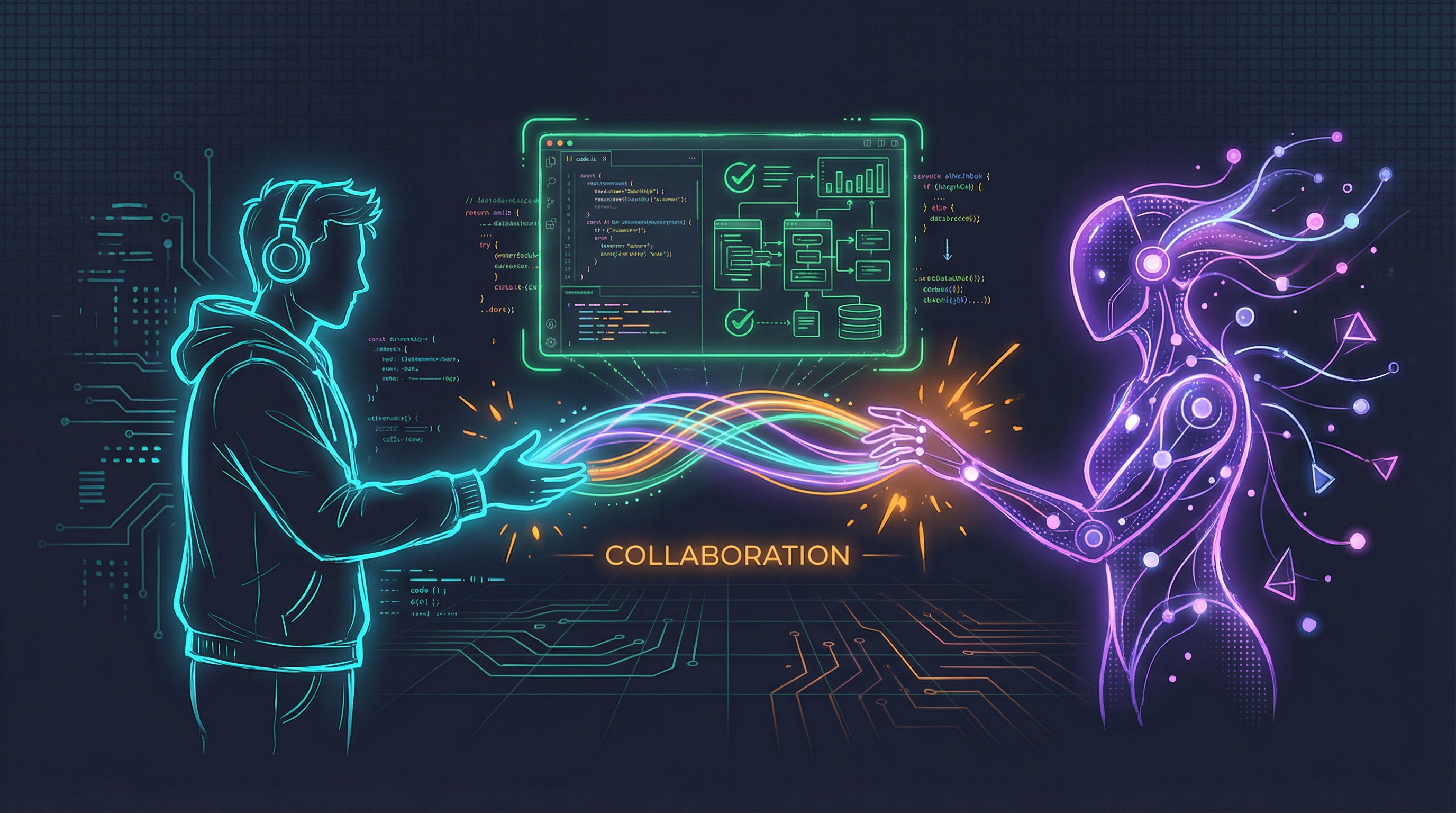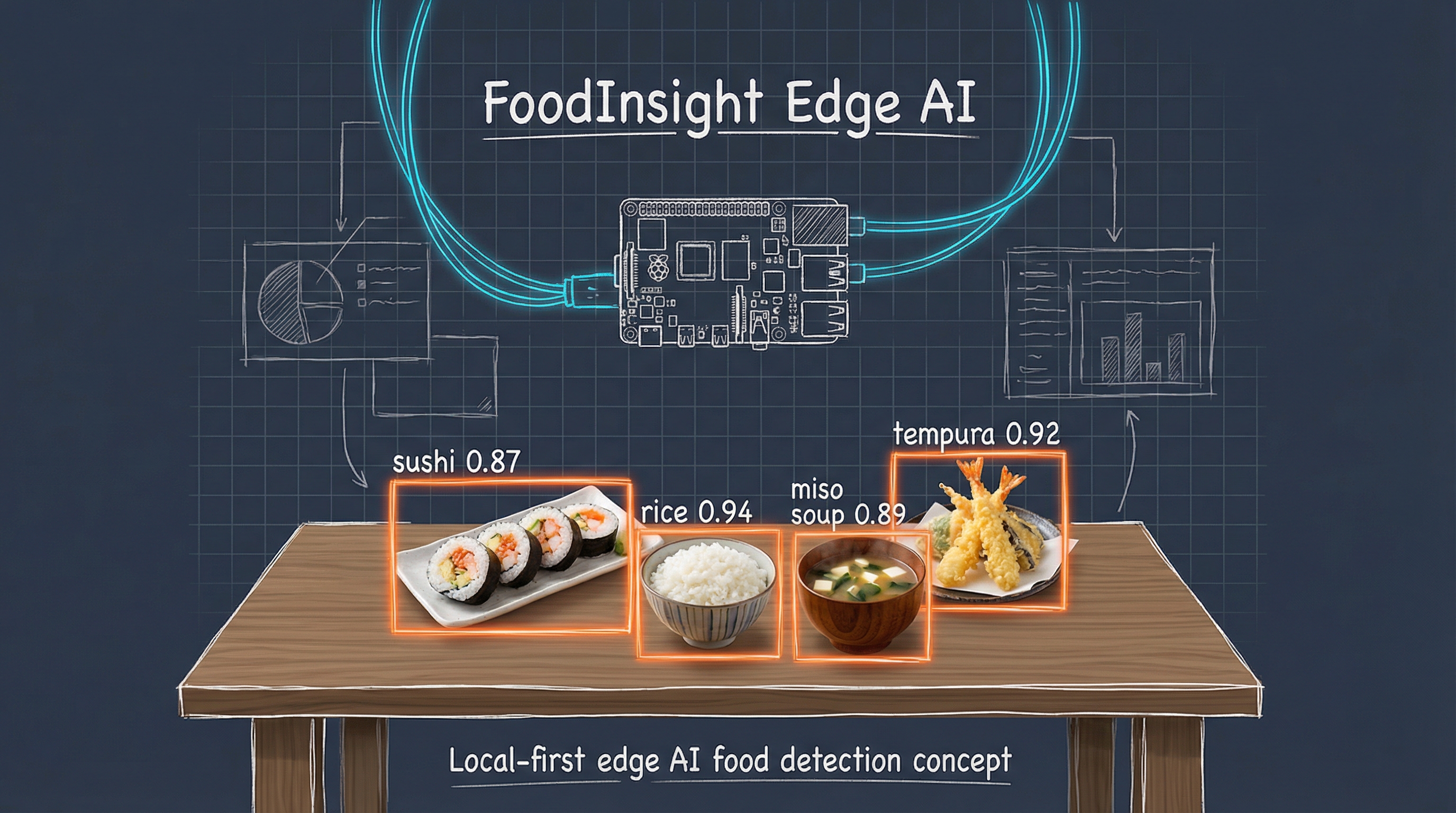
Applied BMAD - Reclaiming Control in AI Development
Enterprise leaders are pouring investment into AI-assisted development, but many are finding that the promised productivity gains come at a steep price: a loss of governance, traceability, and architectural integrity. Unstructured, prompt-driven ...

From Hand-Drawn to AI-Enhanced: Building a Mind Map Digitization Workflow
Mind maps capture thought in a way linear notes cannot, but hand-drawn maps remain trapped on paper, unsearchable and hard to share. In this article, we explore a workflow that transforms hand-drawn mind maps into AI-enhanced digital visualizations while preserving their orga...

Hear Your AI Agents Work in Claude Code
When running five AI agents in parallel, how do you know what’s happening without watching five terminals? The answer is surprisingly low-tech: you listen. By adding voice notifications to Claude Code, we transformed silent terminal output into an ambient, audio-aware experie...
Recent Posts

Journey of AI-Led FoodInsight Development with BMAD
What if a software project’s most productive engineer never wrote a single line of code themselv...

FoodInsight: Edge AI Food Monitoring with Local-First Architecture
What’s on the table? It’s a simple question, yet answering it reliably requires walking to the k...

You Only Look Once: 8 Years of Food Detection Evolution
Eight years ago, we trained a YOLO v2 model to detect 100 types of Japanese food in real-time. I...

Process Philosophy for AI Agent Design Using a Whiteheadian Framework
What if everything we assume about AI agent architecture is fundamentally mistaken? Current agen...

Harmonizing Two AI Agent Systems - A Practical Journey
What happens when you have two capable AI agent systems that each excel at different things, but...

Abstraction of Thought Makes AI Better Reasoners
Chain-of-Thought made LLMs seem smart. But what if step-by-step thinking is the problem, not the...

Ontology - The Queryable Brain of Software Archaeology
Every seasoned developer knows the feeling. You inherit a complex, business-critical system wher...

BMAD V6 Intellectual Ecosystem for Understanding Legacy Software
When we think about interacting with AI, the image that often comes to mind is a simple conversa...

The Rise of the AI-Powered Super Individual
The professional identity you’ve spent years building is becoming a liability. The specialized s...

An AI-Powered Approach to Structural Abstraction - The KRA Model in Reverse Engineering
Ever felt utterly swamped? Faced with a complex system, a mountain of data, or a dense technical...

Unlocking the Secrets of Tabletop Games Ontology
There’s a fascinating concept at play in the world of tabletop games, something akin to a secret...

Personal Embedding and Fine-Tuning with the FLUX Model on Replicate
Image generation has made tremendous strides in the past six months. As someone deeply invested ...

Seeing Logic - The Power of Existential Graphs and Visual Thinking
Logic is inherently challenging—not only difficult to get right, but often tough to even grasp. ...

The Intelligence Age and How to Thrive in It
Human existential crisis occurs when someone deeply questions the meaning, purpose, or value of ...

Creating a Love Song with AI
I’ve always dreamed of writing a song for my love one, but my musical skills are somewhat limite...

Dify - Your Weekend GenAI Magics
When we think about learning, especially in fields as complex as AI and the blooming arena of ge...

Lean AI - How to Reduce LLM Cost?
In the blooming field of Generative AI (GenAI), startups are proliferating like wildflowers afte...

Exploring LLMs Through Minsky's Lens on Universal Intelligence
At the recent World Science Festival, the discussion titled “AI: Grappling with a New Kind of In...

Cracking the Spell of Q* - A New Method in Problem Solving
In the dynamic and ever-changing landscape of AI and computational problem-solving, there arises...

Spatial Reasoning Under Uncertainty
Spatial reasoning is a critical aspect of many real-world applications, including urban planning...

X.509 Identity for Attribute-based Encryption
In the physical world, we trust the identity cards issued by a well known organization, includin...

Building StuG III Model in Winter Camouflage
As we set forth on another exhilarating modeling journey, this time exploring into the realm of ...

Journey of Building Scale Model Dioramas
Diving into the immersive world of modelling and miniatures, one finds the ability to freeze his...

Enhancing Biblical Study with ChatGPT
The study of the Bible is an enriching and transformative journey, offering profound insights in...

Spatial Reasoning in AGI - Insights from Philosophical Perspectives
Spatial understanding is indeed an important aspect of achieving Artificial General Intelligence...

Ask a Book Questions with LangChain and OpenAI
Reading a book can be a fulfilling experience, transporting you to new worlds, introducing you t...
Create Personal Animated AI Avatar
Creating your personal AI avatar can be a fun and exciting way to explore the capabilities of cu...

Dreambooth Training for Personal Embedding
This article will focus on training an embedding that is deeper and is able to go farther than t...

Stable Diffusion Training for Personal Embedding
We previously described the Neural Style Transfer and Deep Dream, which were among the first pop...

FireSQL in Python
PyFireSQL is a SQL-like programming interface to query Cloud Firestore collections using Python....

Game Architecture for Card Game AI (Part 3)
The last article on the topics of “Game Architecture for Card Game” series will focus on the ama...

Game Architecture for Card Game Action (Part 2)
Continue from the previous Game Architecture for Card Game Model (Part 1), we defined a game arc...

Game Architecture for Card Game Model (Part 1)
Being software architects, we always interest to know how a software system is built. At the sam...

Synthesis of Neural to Symbolic Knowledge for NLP System
Much of human knowledge is collected in the written language. Extracting knowledge directly from...

Solving Puzzles using Constraint Logic Programming in Prolog
Since the last article on “Using Prolog to Solve Logic Puzzles” 4 years ago, I finally woke up a...

Dempster-Shafer Theory for Classification using Python
Machine Learning is dominated by ANN (Automated Neural Network), it requires a large training da...

Adventures in Deep Reinforcement Learning using StarCraft II
The paradigm of learning by trial-and-error, exclusively from rewards is known as Reinforcement ...

Attribute-based Encryption for Healthcare Blockchain
It’s no surprise that one of the greatest concerns for a healthcare provider is data security. O...

Geospatial Granular Computing
Granular Computing can be conceived as a framework of theories, methodologies, techniques, and t...

Preparing Geospatial Data in PostGIS
The Spatial is a popular extension to the traditional database systems. When the data has some s...

Existential Crisis with Microservices using Docker
As software architects, we have no doubt that both Microservices architecture and Docker deploym...

Deep Learning on Text Data
Large quantity of human communication is composed in the form of text written in natural languag...

Interactive Hex World Map using D3
How does the nature inspires us about the optimal geometry? The bees create their honeycombs wit...

YOLO for Real-Time Food Detection
The obsession of recognizing snacks and foods has been a fun theme for experimenting the latest ...

FHIR Server Up and Running
Blockchain is a hot topic for making patient’s Electronic Health Record both accessible and safe...

SingularityNET AI Service Integration
With the advent of AI and Blockchain technology and its exponential impact on business, a recent...

Ethereum Mining on Windows 10
The value of dedicated GPU is going beyond the needs of gaming, it is proven to fulfill the prof...

Deep Transfer Learning on Small Dataset
The success of Convolutional Neural Network (ConvNet) application on image classification relies...

Deep Dream with Caffe on Windows 10
Deep Dream is an algorithm that makes an pattern detection algorithm over-interpret patterns. Th...

Deep Learning with GPU on Windows 10
You just got your latest NVidia GPU on your Windows 10 machine. Other than playing the latest ga...

Model of Spatial Construction
The heart of a spatial reasoning system is utilization of spatial knowledge. With proper represe...

Spatial Reasoning Explained
Spatial Reasoning is a logical reasoning system that assumed entities located in space and have ...

Recognizing Snacks using SimpleCV
This article aims to provide the basic knowledge of how to recognize snacks by using Python and ...

Snack Watching with Raspberry Pi
Starting as a fun Jonah Group project, the Snack Watcher is designed to watch the company’s “Sna...

Raspberry Pi 3 for Computer Vision
With Raspberry Pi 3, developing a computer vision project is no longer difficult nor expensive. ...

Using Prolog to Solve Logic Puzzles
What is a logic puzzle? Logic Puzzle is a very funny thing. We are all very interest to read and...

Using Pharo to Learn Smalltalk
Pharo is an open source implementation of the programming language and environment Smalltalk. Ph...